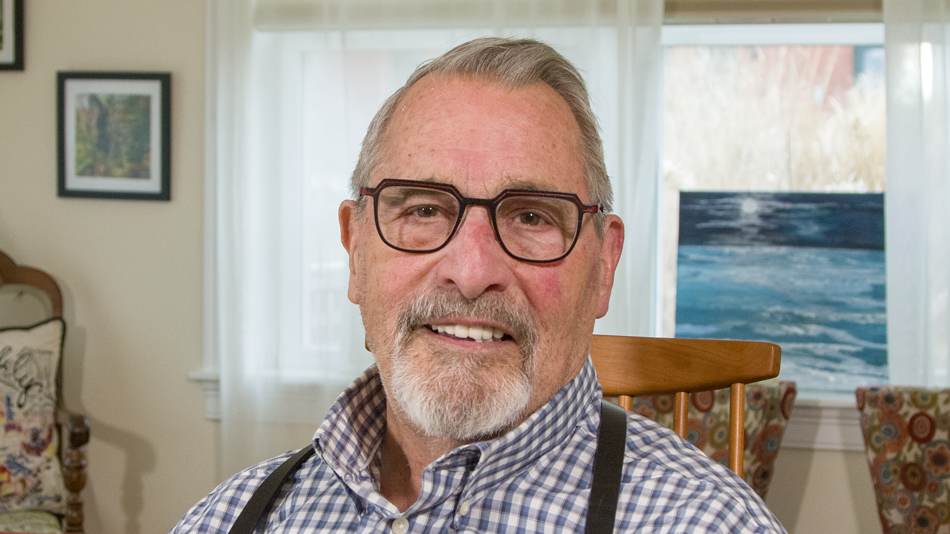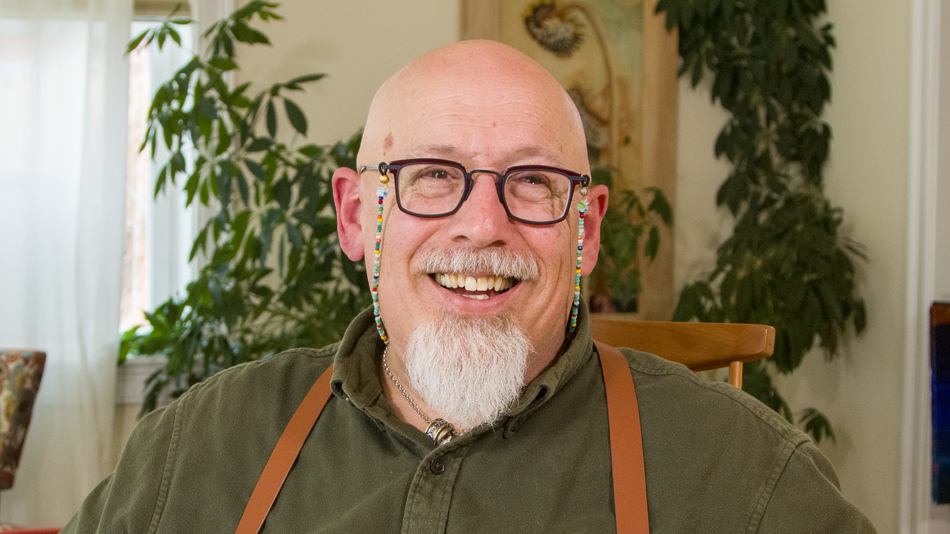I’m Victor Mendolia and I’m from Selden, New York, which is on Long Island.
When I was 16, I started going out to Fire Island, to Cherry Grove. I had recently left this born-again Christian church that I was involved with for a brief time. And I came out and was, had been dating the most gorgeous guy in my high school so we started going to Cherry Grove and I discovered it very quickly. I was 17 when I started working there and I was hanging out with a group of friends. Some of us were working in the Ice Palace at the hotel, but others of us lived either in the hotel or right near it. So we hung out a lot and we listened to completely different things than what we were hearing in the clubs. Blondie and The Ramones and Patti Smith and Nina Hagen, so that was the stuff that we listened to when we were at home but then we would go out dancing and it was a very different scene. It was very homogenous. Back then, there was only a little tiny club in the Pines so for all the guys who were on Fire Island on a given Saturday night, it wouldn’t hold everybody so everybody would take water taxis to the Grove.
As a group of, a diverse group of friends, we didn’t really feel like we fit into the crowd there. So we were looking down, we were at the top of the hotel, the second story of the hotel, looking down at the crowd and it was, this was at the time, at the time they used to call them “The Clones.” So it was guys, they all had their 501 jeans on, a white t-shirt on, with a mustache, so it was like a sea of clones. So for us, I had a 10-inch afro, we were just, we didn’t really, the guy that I was dating used to like wear plastic chains, it was just, we would just, we were not like them. We were standing up on the balcony and we started screaming at the crowd like, “Wake up! Wake up!”
And we just didn’t really get the scene. We didn’t understand it. We had always gone into the city, I mean New York City, when people usually on Long Island, when they say “the city” they mean New York. And most of the time we went in, we went to clubs that were focused on the Christopher Street area, but still wasn’t, it still was all males and it was all almost all, I don’t recall ever seeing a woman there. So I started, we started branching out and looking at other places. And it wasn’t until I went to the Pyramid Club and it was like, “Oh my God, this is exactly what we’ve been talking about, this is what we’ve been picturing.”
It was completely diverse racially, sexuality, it was men and women and dykes and fags and everybody all together. It really was everything we were dreaming about, it was everything we had been talking about that we’d like to see. Like, integrated, mixed music, mixed people, performance art, all in one place. From what we saw and learned there and also had envisioned previously, we started producing events. And first in small places in the East Village and then in much larger places and bringing that whole concept and crowd as well. We cultured and nurtured that crowd because we wanted people who would appreciate the diversity and the difference and the freakiness and the funkiness of what we were delivering.
Even back to the places on Christopher Street and that whole late 70s, early 80s thing that was going on in gay clubs in New York was that the freaks were celebrated. The crazier, the stranger they were exalted. And then when AIDS happened, people, it was like, a party became, four go go boys, muscley go go boys on a box. And a lot of that had to do with the, people’s reaction to AIDS and HIV and that that was healthy and that was safe and that was safe and that was good. And what we felt was being lost was the celebration of differentness.
As time went on, as the 80s went on and the 90s, we tried to continue to celebrate the freaks and the strangeness and the art and the difference that we all experienced. And I think that it’s important today just as much that we exalt and lift up people who are different and who don’t fit in because in many ways they’re the most creative, they’re the most–they’re the people who are bringing the most joy and art and wonderful things to us. And we can’t become our oppressors. We can’t say, “You don’t fit in here. You’re too weird, you’re too this.” It’s like, no. You’re weird, come over here. Come hang out with me, basically.








Share